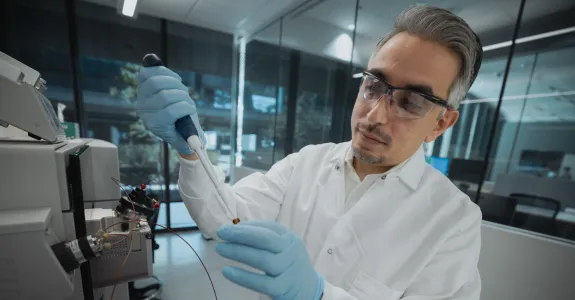
Dr. Gomez-Ospina is a physician scientist and medical geneticist with a strong interest in the diagnosis and management of genetic diseases.
Her research program is on developing better therapies for a large class of neurodegenerative diseases in children known as lysosomal storage disorders. Her current focus is on developing genome editing of hematopoietic stem cells as a therapeutic approach for these diseases beginning with Mucopolysaccharidosis type 1 and Gaucher disease. She established a genetic approach where therapeutic proteins can be targeted to a single well-characterized place in the genome known as a safe harbor. This approach constitutes a flexible, “one size fits all” approach that is independent of specific genes and mutations. This strategy, in which the hematopoietic system is commandeered to express and deliver therapeutic proteins to the brain can potentially change the current approaches to treating childhood neurodegenerative diseases and pave the way for alternative therapies for adult neurodegenerative disorders such as Alzheimer’s and Parkinson’s disease.
She also works in collaboration with other researchers at Stanford to develop point-of-care testing for serum ammonia levels. Such device will greatly improve the quality of life of children and families with metabolic disorders with hyperammonemia.
Dr. Gomez-Ospina lead a multi-institutional collaboration resulting in the discovery of a novel genetic cause of neonatal and infantile cholestatic liver disease. She collaborated in the description of two novel neurologic syndromes caused by mutations in DYRK1 and CHD4.


